More than a month ago, a desperate cry for help emerged from a small, forgotten corner of the world—echoing from the suffering of a critically ill Alabai dog. He didn’t have a name then, just a broken body and fading hope. But soon, he would be called Rico—a name that would come to symbolize strength, survival, and the power of second chances. At the time of his discovery, Rico was in a dire state. Once a proud and robust dog, full of the spirit and majesty that defines the Alabai breed, he now lay helpless and barely clinging to life. His body was frail, ribs protruding through his skin, and he had lost the energy even to lift his head. Volunteers were contacted. Pleas for assistance were made. But for days, no one came. Time dragged on as his condition steadily declined. His appetite disappeared. His once watchful eyes grew dull. With every passing hour, the fear grew: Rico might not make it through the night.
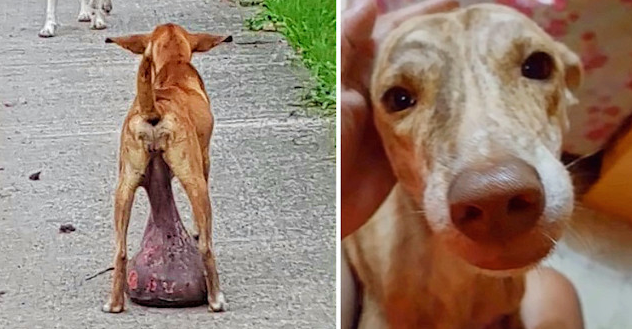
Finally, someone answered the call. A rescuer, unwilling to accept defeat, arrived and rushed Rico to a veterinary clinic. What they found was heartbreaking. Rico was so weak that drawing blood was a nearly impossible task—his veins collapsed under the pressure of a simple needle. Tests revealed the devastating truth: Rico was suffering from megaesophagus, a rare and life-threatening condition that prevents food from reaching the stomach properly. The prognosis was grim. With a survival rate hovering around just 20%, the odds were stacked against him. Some professionals recommended euthanasia, believing that the most humane option was to let him go. But one person stood firm. No. Rico deserved a chance.
That refusal to give up sparked the beginning of a long, difficult road to recovery. Rico’s treatment couldn’t wait—not even for a moment. His feeding routine became an exact science. Every meal had to be served upright, often in a special chair to allow gravity to help move food into his stomach. The food was measured meticulously, the consistency perfected. After each meal, Rico had to remain in an upright position for at least 30 minutes to avoid regurgitation, aspiration, or further complications. The team set alarms through the night, waking every few hours to monitor him, feed him, and hold him in position. And even then, if digestion didn’t occur within two hours, emergency intervention was required.
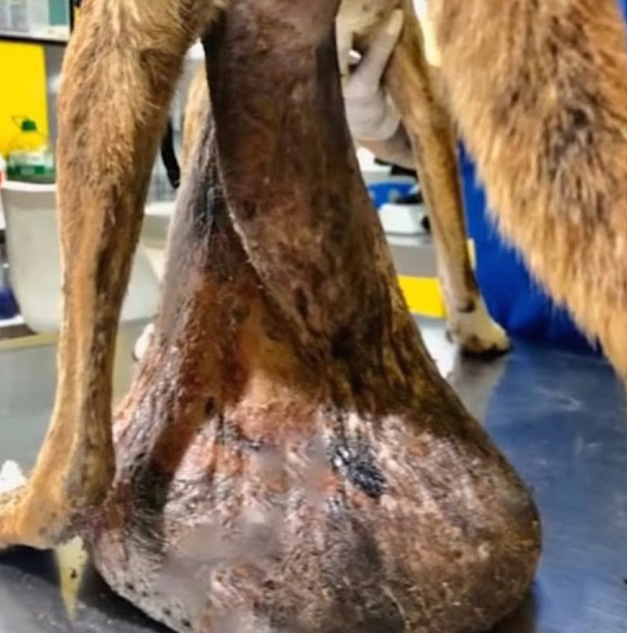
But day by day, something remarkable began to happen. Rico started fighting back. The same dog who once lay motionless on the floor began to lift his head. His tail, once still, now gave an occasional wag. A sparkle returned to his eyes. It wasn’t just medical progress—it was the return of life itself. He began to eat without vomiting. His body started to absorb nutrients. He stopped losing weight—and then he began gaining. In just one month, Rico gained over 10 kilograms. His fur regained its sheen, and his posture became stronger. The dog that once couldn’t walk across a room now trotted outside, eager to sniff the wind and feel the sun on his back.
Every veterinary appointment brought better news. His bloodwork stabilized. His energy levels improved. His digestion, though still fragile, became more consistent. His caretakers—who had once hovered anxiously over every feeding—now smiled with cautious optimism. And then, the final milestone: Rico’s health was declared stable. After weeks of relentless care, sleepless nights, and emotional ups and downs, the team could finally breathe. Treatment was no longer a desperate fight for survival. It was now about maintaining and celebrating life.
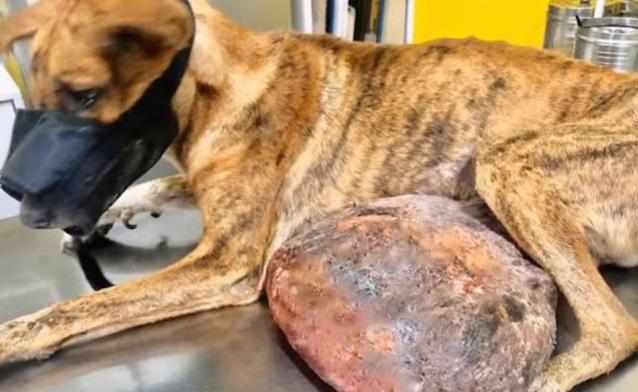
Today, Rico is finally home. Not just in a physical sense, but in every way that matters. He wakes up each morning stronger than the last. He feels the snow crunch beneath his paws and closes his eyes in peaceful joy. He greets every day with quiet gratitude, not with grand gestures but in the small ways—like leaning into a hand that pets him or stretching out lazily on a warm blanket. He has a spark that only comes from surviving the worst and finding beauty in the simplest things.
His story is more than a tale of recovery—it is a message to all of us. A reminder that no matter how bleak the circumstances, life always holds potential for change. That even when the odds say “no,” the heart can say “yes.” It’s about how a single person’s belief can alter the course of another’s life. Rico’s survival wasn’t just a medical miracle—it was a testament to compassion, to grit, and to the invisible threads that bind us to the animals we love.
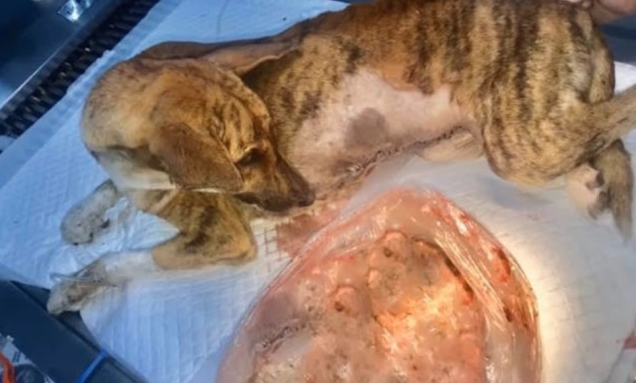
Rico is no longer a shadow of his former self. He is vibrant, resilient, and whole. His past is not forgotten, but it no longer defines him. Instead, he carries it like a badge of honor—a symbol of endurance. When people meet him now, they don’t see a broken dog. They see a warrior. A soul who refused to give up. A dog who reminds us that love, when given freely and fought for fiercely, can conquer even the most impossible odds.
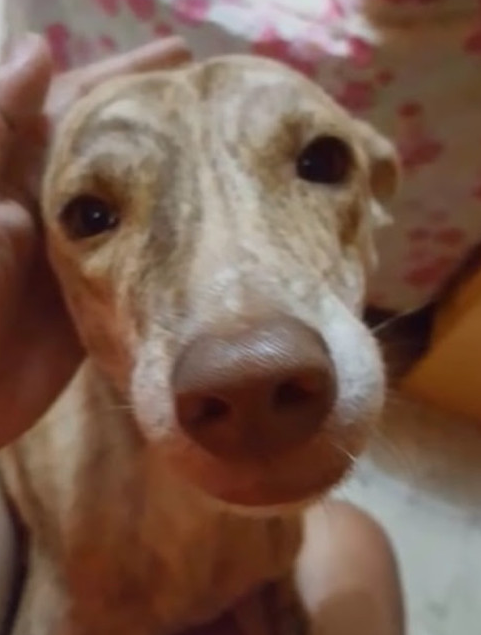
He was once considered a case with little hope—a statistic, a burden. But Rico proved that statistics don’t measure heart. That numbers can’t calculate willpower. That being worth saving isn’t about perfect health or easy paths. It’s about fighting for life simply because it matters. Rico was more than just a dog in need—he was a life worth every ounce of effort. And he is living proof that sometimes, one chance is all it takes to rewrite a story.
Now, as the snow falls gently outside his window and the world carries on, Rico rests peacefully—knowing he is safe, he is loved, and he is finally home.





